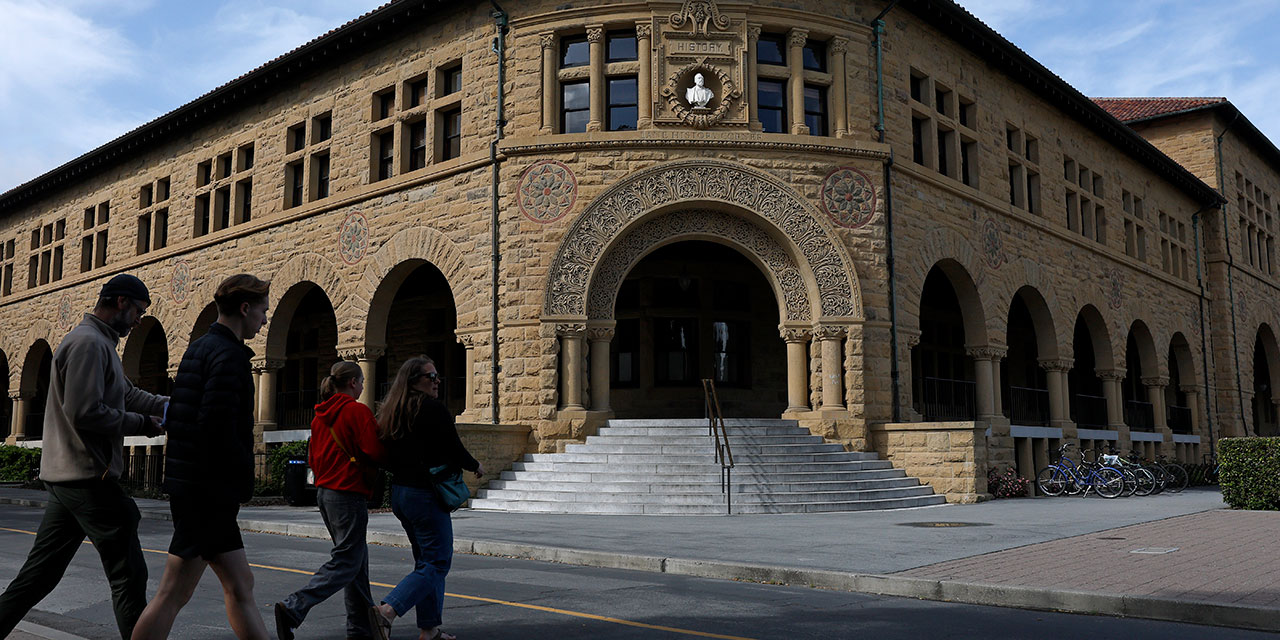Earlier this month, the Department of Education released its long-anticipated revision of the regulations governing Title IX, the federal law that revolutionized women’s educational opportunities, particularly in sports. That 1972 law is so short that I can quote it in its entirety: “No person in the United States shall, on the basis of sex, be excluded from participation in, be denied the benefits of, or be subjected to discrimination under any education program or activity receiving federal financial assistance.” The new rule, which goes into effect on August 1, adds a 1,577-page gloss on those 37 simple words, redefining sexual discrimination in a way that harms women and girls, while doing even more damage to due process and free speech.
The part of the new rule that’s getting the most attention is the expansion of Title IX to cover “gender identity.” That means that, even as educational institutions may continue to separate facilities like bathrooms and locker rooms, “preventing someone from participating in school (including in sex-separate activities) consistent with their gender identity” is now illegal. Notably, this innovation is based in part on the Supreme Court’s 2020 ruling in Bostock v. Clayton County, which said that protections against sex-based discrimination in employment apply to gender identity and sexual orientation.
Finally, a reason to check your email.
Sign up for our free newsletter today.
That legal argument is highly questionable. First, the Bostock majority stated that “we do not purport to address bathrooms, locker rooms, or anything else of the kind.” Second, “gender identity” is nowhere defined in the new rule, but the conflation of sex and gender contradicts Title IX’s understanding of sex as biological and binary—regardless of whether your preferred theory of statutory interpretation elevates text or purpose, or even legislative history. However you slice it, Title IX was meant to help women and girls, not to solve larger social issues regarding sex stereotypes and gender norms.
Moreover, even as the new rule explicitly disclaims any impact on athletic teams, jurisdictions are still empowered to allow biological males to play in women’s and girls’ sports or to use their intimate facilities without violating Title IX. Title IX thus no longer protects female-only sports and spaces. In other words, the Department of Education has ensured that a high school boy can simply walk into a girls’ bathroom if he tells an administrator that he “identifies” as a girl.
There’s a reason this new Title IX rule, which was first proposed in 2021 and which garnered more than a quarter-million public comments, was delayed again and again: the Biden administration knows that it’s stretching the law beyond its breaking point. At a time when American higher education is suffering a drastic loss of popular confidence, the new regulations add fuel to the fire. Name-checking Bostock and punting any federal mandate regarding athletic competition into Biden’s presumed second term doesn’t save the rule.
As bad as the redefinition of “sex” is, what’s arguably even worse is the new rule’s subversion of due process and free speech. The Kafka-esque inquisitions that were the hallmark of Obama-era governance will now return with a vengeance.
The new regulations undermine the basic elements of due process in proceedings that evaluate allegations of sexual misconduct by reversing the reforms implemented by Trump administration Secretary of Education Betsy DeVos. The repealed protections include the right to a live hearing to contest the accusations, the right to cross-examine one’s accuser, and the right to be represented by lawyers. It also allows for the return of the “single-investigator” model, in which one administrator—often the school’s Title IX or DEI coordinator—serves as prosecutor, judge, and jury.
Bloated educational bureaucracies will waste no time in investigating and disciplining students and faculty for politically incorrect speech that now runs afoul of expansive, nebulous, and shape-shifting definitions of sex-based discrimination. For example, the regulations replace the Trump-era definition of student-on-student harassment with a more expansive, less speech-protective definition that departs from Supreme Court precedent.
All of this continues the subversion of the core mission of schools and universities to seek truth, develop human knowledge, and cultivate and protect classical liberal values like free speech, due process, and equality under the law. The rule aims to inculcate radical change in American society, replacing women’s equality with far-left gender theory. It’s bad law, bad policy, and a continuation of a broader shift from education to activism, with the empowerment of political commissars and bureaucrats over parents and educators.
Photo: Carlo Prearo/iStock/Getty Images Plus




